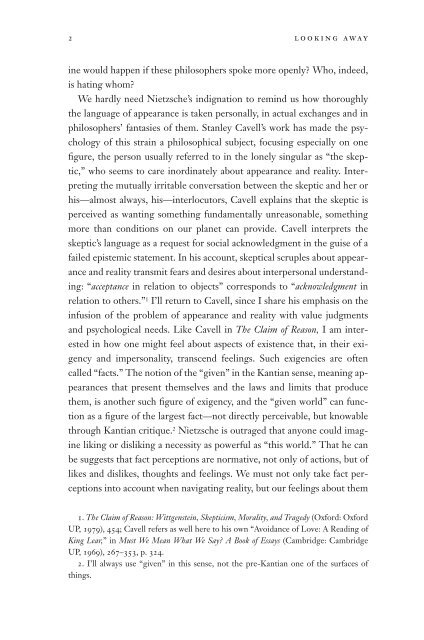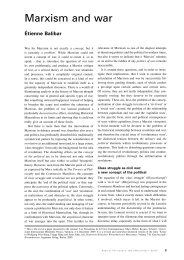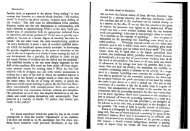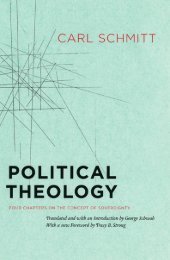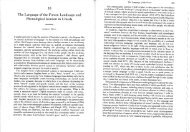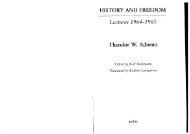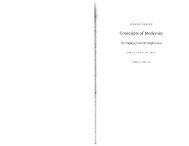Terada - Looking Away (Selections).pdf - Townsend Humanities Lab
Terada - Looking Away (Selections).pdf - Townsend Humanities Lab
Terada - Looking Away (Selections).pdf - Townsend Humanities Lab
Create successful ePaper yourself
Turn your PDF publications into a flip-book with our unique Google optimized e-Paper software.
2 looking away<br />
ine would happen if these philosophers spoke more openly? Who, indeed,<br />
is hating whom?<br />
We hardly need Nietzsche’s indignation to remind us how thoroughly<br />
the language of appearance is taken personally, in actual exchanges and in<br />
philosophers’ fantasies of them. Stanley Cavell’s work has made the psychology<br />
of this strain a philosophical subject, focusing especially on one<br />
figure, the person usually referred to in the lonely singular as “the skeptic,”<br />
who seems to care inordinately about appearance and reality. Interpreting<br />
the mutually irritable conversation between the skeptic and her or<br />
his—almost always, his—interlocutors, Cavell explains that the skeptic is<br />
perceived as wanting something fundamentally unreasonable, something<br />
more than conditions on our planet can provide. Cavell interprets the<br />
skeptic’s language as a request for social acknowledgment in the guise of a<br />
failed epistemic statement. In his account, skeptical scruples about appearance<br />
and reality transmit fears and desires about interpersonal understanding:<br />
“acceptance in relation to objects” corresponds to “acknowledgment in<br />
relation to others.” 1 I’ll return to Cavell, since I share his emphasis on the<br />
infusion of the problem of appearance and reality with value judgments<br />
and psychological needs. Like Cavell in The Claim of Reason, I am interested<br />
in how one might feel about aspects of existence that, in their exigency<br />
and impersonality, transcend feelings. Such exigencies are often<br />
called “facts.” The notion of the “given” in the Kantian sense, meaning appearances<br />
that present themselves and the laws and limits that produce<br />
them, is another such figure of exigency, and the “given world” can function<br />
as a figure of the largest fact—not directly perceivable, but knowable<br />
through Kantian critique. 2 Nietzsche is outraged that anyone could imagine<br />
liking or disliking a necessity as powerful as “this world.” That he can<br />
be suggests that fact perceptions are normative, not only of actions, but of<br />
likes and dislikes, thoughts and feelings. We must not only take fact perceptions<br />
into account when navigating reality, but our feelings about them<br />
1. The Claim of Reason: Wittgenstein, Skepticism, Morality, and Tragedy (Oxford: Oxford<br />
UP, 1979), 454; Cavell refers as well here to his own “Avoidance of Love: A Reading of<br />
King Lear,” inMust We Mean What We Say? A Book of Essays (Cambridge: Cambridge<br />
UP, 1969), 267–353, p. 324.<br />
2. I’ll always use “given” in this sense, not the pre-Kantian one of the surfaces of<br />
things.


